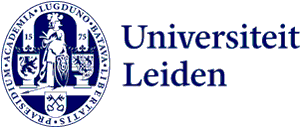
Leiden quantum technology research very successful in funding call
No less than six Leiden projects received a grant for quantum research from the national growth programme Quantum Delta NL and the NWO. After all, in order to boost quantum technology not only industry is needed, but also science. Research towards new sensors, faster algorithms and quantum materials, for example.
At Leiden University, physicists, computer scientists and mathematicians work on quantum research. This broad expertise contributes to the development of all kinds of quantum technologies. Of the nineteen research projects awarded in 2023, six are from Leiden researchers.
Superfluid quantum information - Dirk Bouwmeester
Superfluid helium is one of the most exotic forms of quantum matter and, analogous to superconductors, it can display discrete dissipation-free excitations, as desired for quantum memories and quantum computers. Superfluid helium is also the ultimate optomechanical system, enabling light-matter interactions at the single quanta level, as needed for future quantum networks and for realizing remote entanglement. We will combine integrated photonics with embedded superfluid nano-channels to control the interaction between light and acoustic Helium waves to the level of individual photons and phonon, opening up a wealth of new quantum technologies.
Quantum algorithms for mathematical problems - Peter Bruin
Quantum computers have the potential to solve certain algorithmic problems much more efficiently than classical computers. However, it is only partially known so far what kind of structure a problem must have in order to be susceptible to such a ‘quantum speed-up’. The researchers will employ techniques from algebra and number theory to gain new insight into this question. They demonstrate the resulting algorithms by running them on small-scale quantum chips.
Solving hard problems in Topological Data Analysis with Quantum Many-Body Methods - Patrick Emonts
Topological data analysis is a novel approach to extract robust information from complicated datasets. It is used in medicine, biology, finance and time-series analysis. Interestingly, topological data analysis can be formulated as a problem in quantum mechanics. Using this new formulation, we can leverage the power of variational quantum algorithms and quantum-inspired methods on classical computers to solve hard problems in topological data analysis.
Better components for the quantum internet? - Martin van Exter
After the first impressive steps towards the construction of a national quantum network, many challenges lay ahead. Van Exter's group is investigating ways to improve the building blocks of this quantum internet. The relatively new Van der Waals materials that the researchers are using offer unprecedented possibilities because they can be designed and fabricated layer by layer. And confining these ultrathin materials between two mirrors further enhances their beneficial properties. The combination of new materials with optical confinement offers the possibility of increasing the, hitherto modest, communication speed on the quantum internet by many factors of ten.
A quantum readout for a quantum sensor - Bas Hensen & Kaveh Lahabi
The most sensitive magnetic field detectors are nanometre sized loops of superconducting track on a chip. They find use in quantum computing, nanomedicine and even space exploration. In this study, we extend the capabilities of such detectors by integrating them with high frequency superconducting resonant circuits. This allows the detectors to be read out better and faster, but also allows coherent coupling of the resonant circuit to other systems that produce a magnetic field, such as the motion of a small magnetic particle. In turn, this allows control over mechanical motion down to the quantum regime.
Boosting the Search for New Quantum Algorithms with AI - Alfons Laarman & Vedran Dunjko
Compared to classical algorithms, which have enjoyed decades of development, many quantum algorithms are still in their infancy. The key technologies contained in classical algorithms often offer exponential advantages. This project will add these key technologies to quantum algorithms so that they enjoy the same advantage on top of the quantum acceleration. The resulting new line of quantum algorithms is therefore more able to compete with their classical counterparts. This closes an important gap on the road to a ‘quantum advantage’, a first experiment showing that quantum algorithms can be faster than classical algorithms for a useful task.
Quantum technology is a key technology that can provide answers to many unsolved societal challenges. The growth fund Quantum Delta NL, together with NWO, therefore organises a thematic call for scientific quantum research. Proposals in the field of quantum sensing, quantum computing and quantum internet can be submitted. In this second round of this programme, almost 10 million euro was awarded to 19 projects. A special feature is that newly-promoted researchers could apply for a personal research budget. In this way, the growth fund hopes to encourage young talent in quantum technology.
